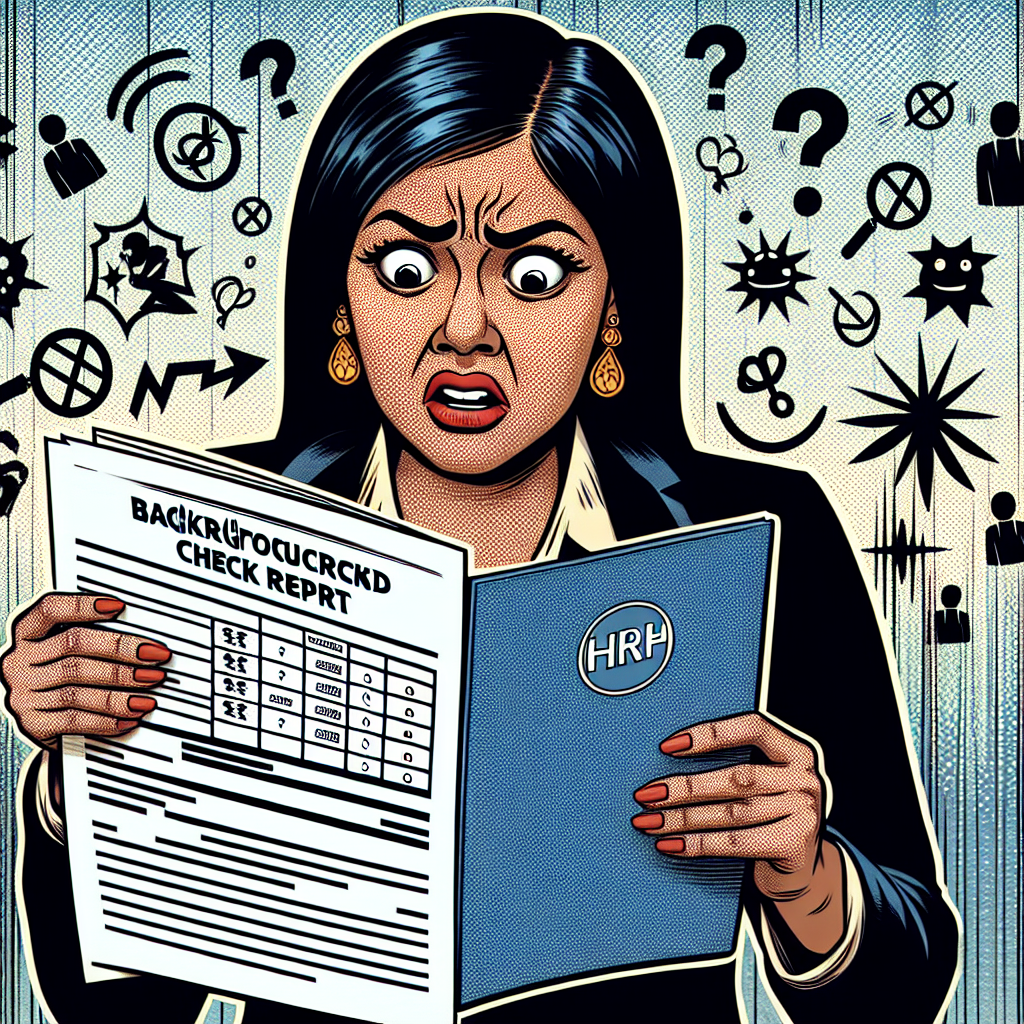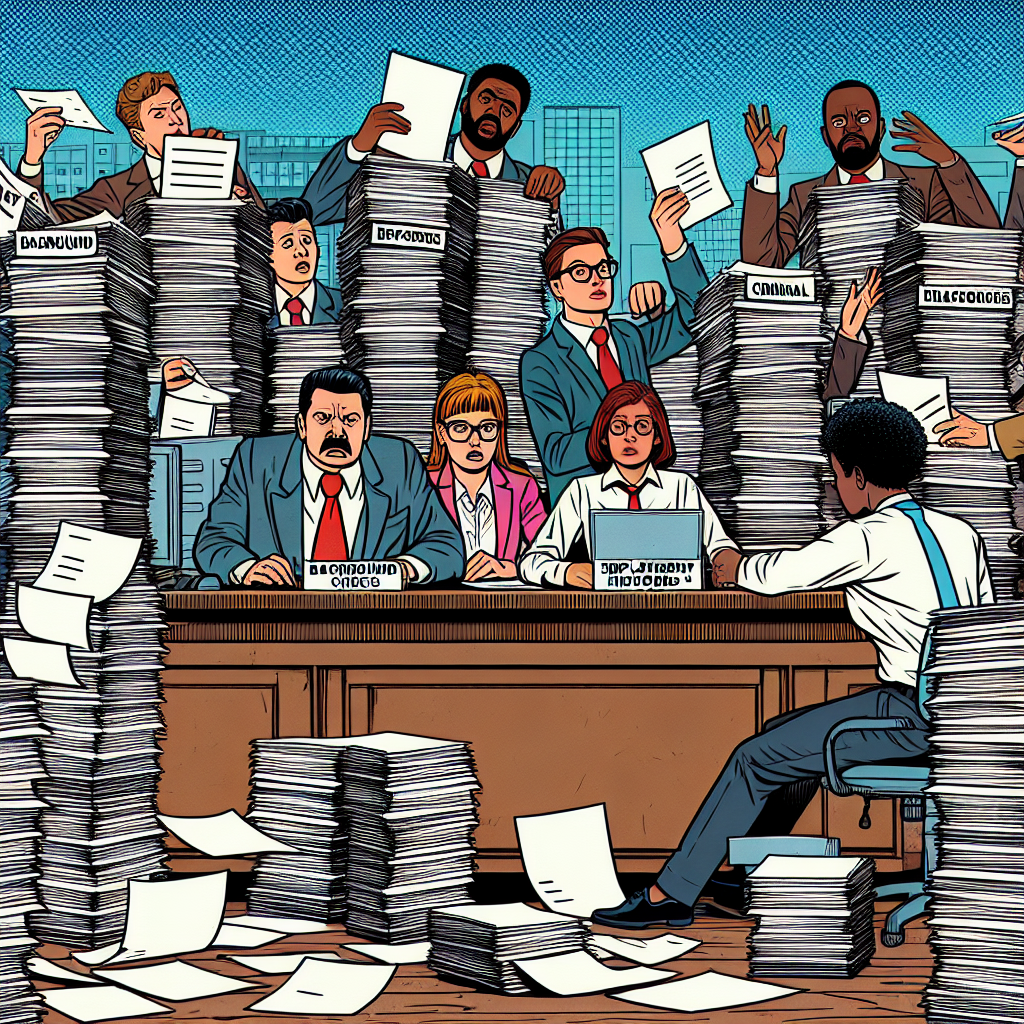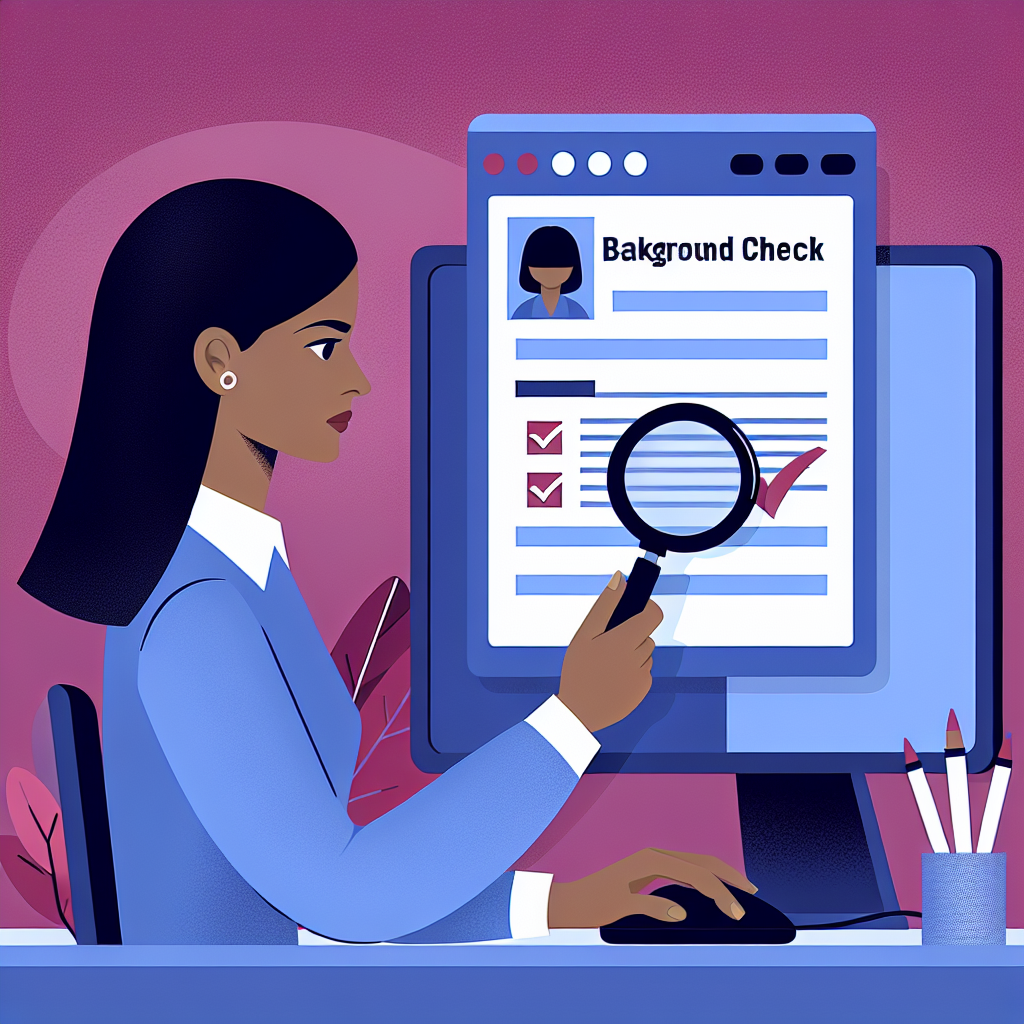Introduction
Imagine this: you’ve found the perfect candidate. They have the skills, the charm, and they even bake a mean chocolate chip cookie. But then comes the dreaded background report filled with errors in background reports. Suddenly, your dream hire turns into a hiring nightmare because of misleading background screening data.
In this post, we’ll dive deep into the murky waters of background check errors. We’ll explore common pitfalls like incorrect criminal record reports, employment history discrepancies, and how to effectively dispute those pesky inaccuracies. Whether you’re dealing with erroneous criminal history reports or flawed employment verification reports, we’ve got your back!
So buckle up! We’re about to embark on a journey to uncover the most common mistakes in background checks and arm you with strategies for correcting those errors. Because let’s face it no one wants to be responsible for hiring someone based on an inaccurate background check!

Understanding Background Check Errors
Welcome to the wild world of background checks, where background check errors can turn a smooth hiring process into a chaotic circus. But fear not! Understanding these errors is the first step in fixing them.
What Are Background Check Errors?
Simply put, background check errors are inaccuracies found in background reports that can lead to misleading conclusions about a candidate’s qualifications or character. Think of them as the pesky pop-up ads of hiring annoying and often misleading!
The Importance of Accuracy
In today’s competitive job market, accurate background checks are crucial. Employers want to ensure that they are making informed decisions based on reliable data. After all, who wants to hire someone with a faulty background check? Spoiler alert: nobody!
Did You Know? According to recent studies, over 30% of background checks contain some form of error, ranging from incorrect criminal records to employment history discrepancies. That’s a lot of potential headaches for HR teams!
Common Types of Background Check Mistakes
- Incorrect criminal record reports: You don’t want to mistakenly label an innocent candidate as a felon.
- Employment history discrepancies: Did they really work there? Or did they just have an epic summer vacation?
- Inaccurate background information: Sometimes the data just gets it wrong like when your GPS thinks you’re in a different state.
- False positives: These are like those annoying spam emails that you just can’t seem to shake off.
- Identity verification mistakes: Because mixing up John Smiths can lead to some seriously awkward situations.
If you’re scratching your head wondering how these errors happen, you’re not alone. Many factors contribute, including outdated databases and human error during data entry. So buckle up; we’re diving deeper into this quagmire next!
Common Background Screening Mistakes
Ah, the world of background checks where the truth can sometimes take a detour! Let’s dive into some of the most common background screening mistakes that can lead to those pesky background check errors that everyone loves to hate.
- Incorrect background check information: This is the biggie! Sometimes, reports may contain outdated or simply wrong details about a candidate. Imagine applying for a job and finding out your last employer was listed incorrectly. Yikes!
- Errors in criminal records reports: A little mix-up here can paint a candidate as a criminal mastermind when they might just be an innocent bystander. Criminal record errors can lead to disastrous hiring decisions.
- Employment history discrepancies: If your resume says you were a “Chief Unicorn Officer” at a company that doesn’t exist, you might have an issue. Employment screening errors often arise from mismatched dates or job titles that don’t align with reality.
- False positives in background checks: Nothing like being flagged as a “high-risk” candidate due to someone else’s misdeeds! False background check results can cause unnecessary panic for both candidates and employers alike.
- Misleading data from background screenings: Sometimes, the data might be accurate but presented in a way that’s downright misleading. For example, if the report highlights minor infractions as major red flags, it could unjustly tarnish someone’s reputation.
Key Takeaway: Always double-check your background check sources and ensure accuracy is prioritized. Remember, faulty background checks not only affect candidates but also tarnish your hiring process!

The best part? Most of these common mistakes are avoidable with the right processes in place. So let’s roll up our sleeves and get to fixing those inaccuracies before they wreak havoc on both sides of the hiring table!
The Impact of Background Check Errors on Hiring Decisions
When it comes to hiring, a single background check error can send ripples through the entire recruitment process. Imagine this: a candidate with stellar qualifications gets passed over because of a faulty background check. Ouch! Not only does that affect the candidate’s career, but it also raises questions about the employer’s credibility.
- Consequences for candidates with erroneous information: Candidates may find themselves unfairly labeled due to inaccurate background information. This can lead to lost job opportunities, damaged reputations, and even emotional distress. For example, a minor criminal record error could lead to a perfectly qualified candidate being dismissed from consideration.
- The effect on employer reputation and trustworthiness: Organizations that rely on faulty background checks risk damaging their reputation. If word gets out that an employer frequently makes hiring decisions based on erroneous data, they may struggle to attract top talent. After all, who wants to work for a company that can’t get their facts straight?
- Potential legal implications for organizations: Background check errors can also lead to legal headaches. If an organization fails to provide candidates with the opportunity to dispute inaccurate information, they could run afoul of the Fair Credit Reporting Act (FCRA). This could result in costly lawsuits and fines definitely not the kind of drama any HR manager wants in their life!
Key Takeaway: Ensuring accuracy in background checks is not just about protecting candidates; it’s also about safeguarding your organization’s reputation and avoiding potential legal issues.
In summary, the impact of background check errors extends far beyond just one bad report. It affects job seekers’ lives, tarnishes employer reputations, and could even land organizations in hot water legally. So let’s be proactive about fixing these errors before they become hiring disasters!

How to Identify Background Check Errors
Identifying background check errors can feel like searching for a needle in a haystack, especially when that haystack is filled with misleading data and erroneous background information. But fear not! With a little know-how, you can sift through those reports like a pro.
Reviewing Reports for Inaccuracies and Discrepancies
The first step in spotting an incorrect background check is to review the report thoroughly. Look for:
- Name variations: Misspellings or different name formats can lead to confusion.
- Date of birth mismatches: This is a classic red flag that could indicate an identity verification mistake.
- Employment history discrepancies: Ensure the job titles and dates match your records.
- Criminal record errors: Double-check any reported offenses against your actual history.
Common Red Flags to Look Out For in Reports
When combing through background reports, keep an eye out for these common culprits of faulty background checks:
- False positives: These occur when someone with a similar name or profile shows up in the results.
- Inaccurate criminal history report: A report that lists charges you never faced can be damaging!
- Employment verification issues: If your previous employers are listed incorrectly or not at all, it could raise eyebrows.
The Role of Technology in Identifying Errors Quickly
The good news is that technology is on your side! Many modern background screening platforms are equipped with advanced algorithms designed to detect inconsistencies and alert you before they become major issues. Here’s how tech helps:
- A.I. and machine learning: These tools analyze patterns and flag potential inaccuracies faster than any human eye could!
- Automated alerts: Get notified immediately if something looks off, allowing for quick corrections.
- User-friendly dashboards: Visual representations of data make it easier to spot trends and anomalies at a glance.

Steps to Dispute Background Check Results
Disputing background check errors can feel like trying to find a needle in a haystack, especially when the stakes are high. But fear not! Here’s a straightforward guide to help you navigate the murky waters of background screening disputes.
- Gathering necessary documentation and evidence: Start by collecting all relevant documents that support your claim. This could include pay stubs, tax records, or even court documents that clarify any criminal record errors. The more evidence you have, the stronger your case will be.
- The process for disputing errors with screening companies: Reach out to the background screening company directly. Most reputable firms will have a specific process for handling disputes. Be prepared to provide your evidence and clearly explain what is incorrect. Remember, persistence is key don’t back down if they initially dismiss your claim!
- Communicating with candidates about disputes and resolutions: If you’re an HR manager or recruiter, keep candidates in the loop about any disputes related to their background checks. Transparency builds trust and can ease their concerns about potential employment screening errors. Let them know what steps you are taking to resolve these issues.
Pro Tip: Keep notes of all communications with background check companies and candidates regarding disputes. This documentation can be invaluable if further escalation is needed.
Disputing inaccurate background information may not be a walk in the park, but following these steps can help streamline the process and ensure that you’re addressing common background check errors effectively.
Fixing Background Check Mistakes: Best Practices for Employers
When it comes to background check errors, employers often find themselves in a tricky situation. The consequences of an incorrect background check can ripple through the hiring process, affecting not just candidates but the entire organization. So, how can you tackle these pesky issues head-on? Here are some best practices to get you started:
- Establishing a clear dispute resolution process: Create a structured method for addressing disputes. This means having a dedicated team or point of contact who can handle inquiries about errors in background reports. Make sure your process is transparent and accessible, so candidates know exactly what steps to take if they find discrepancies.
- Training HR teams on handling inaccuracies: Equip your HR personnel with the knowledge they need to identify and fix background screening mistakes. Regular training sessions can help them recognize common pitfalls, such as employment history discrepancies or faulty background checks, ensuring they’re prepared to resolve issues swiftly.
- The importance of transparency with candidates: Open communication is key. If a candidate disputes information on their report, acknowledge their concerns and provide them with the necessary resources to address these issues. This not only builds trust but also helps in resolving disputes over screening data errors more efficiently.
Tangible Takeaway: By implementing a clear dispute resolution process and fostering open communication, you can significantly reduce the impact of background check errors on your hiring decisions.
But wait, there’s more! Consider leveraging technology to streamline the verification process. Automated systems can help flag potential inaccuracies in real-time, allowing you to catch those sneaky mistakes before they become major headaches. Plus, investing in reliable background screening services can minimize the chances of receiving misleading data from background screenings.
In summary, fixing background check mistakes isn’t just about correcting errors; it’s about creating an environment where transparency and accuracy reign supreme. By following these best practices, you’ll not only enhance your hiring process but also foster trust with your candidates because who doesn’t want that?

